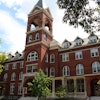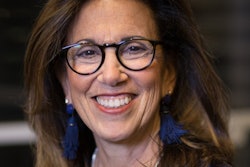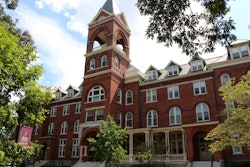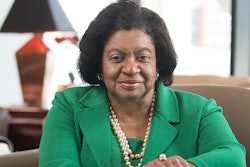Higher education observers consistently note that a number of presidents will be stepping down or retiring over the next decade, paving the way for up-and-coming leaders to carry on the work for student success and completion.
At historically Black colleges and universities, particularly, a cohort of younger presidents and chancellors has entered the space with a vision to propel their institutions forward. Although younger than the “traditional” college president, the leaders bring with them years of higher education experience and they are leveraging relationships with government, industry and older presidential mentors to address some of the challenges that many HBCU presidents collectively face: enrollment growth, student success, fundraising, access and affordability and financial stability.
As chancellor of Elizabeth City State University, Dr. Karrie G. Dixon, 44, notes that her experiences in higher education have shaped her philosophy to serving students more so than her age. Her trajectory to the chancellorship involved six years of teaching at the collegiate level, service in an administrative capacity at the University of North Carolina System office working with more than 17 public universities in the state — five of which were HBCUs, — and participation in professional development opportunities such as the American Association of State Colleges and Universities’ Millennium Leadership Initiative and an American Council on Education fellowship.
“These experiences have influenced the way I prioritize my understanding of what students need and want to be successful,” Dixon said. “I have a clear-eyed perspective of the ever-changing needs to foster student success in higher education, which has been invaluable.”
For Dixon, her service as the seventh chancellor of the North Carolina-based HBCU involves intentionally creating an environment where students love where they live and learn, which is imperative to their success, she said. She believes it is important to bring a lot of energy to her role in order to relate to her students and be visible on campus.
She can be found attending academic and social events with students throughout the year.
“Students enjoy seeing me around campus, and I definitely enjoy interacting with them,” Dixon said. “One of the benefits of being a smaller institution is it allows me to know the students’ names, their interests and their involvement. They are a part of this community, and they are valued.”





















